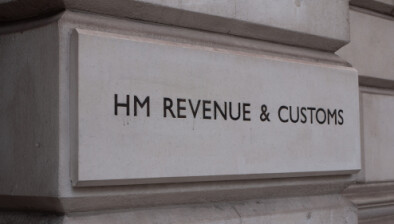CIOT: ‘Unfair’ HMRC repayment interest rates should be reviewed

Richard Wild
The Chartered Institute of Taxation (CIOT) has urged the government to review “unfair” repayment interest rates, with taxpayers facing late payment bills from HMRC up to 17 times higher than what is returned to those who have overpaid.
HMRC generally charges interest on late payment at the Bank of England’s base rate, currently 4%, plus 2.5%. However, interest on repayment from HMRC to individuals and businesses is the base rate minus 1%.
This means there is usually a difference of 3.5 percentage points between the interest charged on late payments by HMRC and that paid by HMRC on repayments.
In an extreme scenario, this could result in an individual who submits their Self-Assessment tax return for the year 2020-21 on 31 January 2022, claiming a repayment of £5,000, being returned £57 in interest if HMRC do not make the repayment until 28 February 2023, while another who submits their return on the same date but fails to pay a liability of £5,000 until 28 February 2023 could be charged an additional £976 by virtue of their late payment, more than 17 times as much.
In a representation ahead of the March Budget, CIOT says the government should now hold a consultation on whether the current rates are suitable.
Richard Wild, head of tax technical at CIOT, said: The differential between the rate of interest charged by HMRC on late payments, as compared to the interest it pays on overpayments or refunds, is simply inequitable, particularly at times when many businesses and individuals continue to suffer long delays in receiving repayments from HMRC.
“The simple examples in our Budget Representation demonstrate that the costs of paying late, particularly when penalties are considered, can be many times greater when they are charged on taxpayers as opposed to when they are charged on HMRC.
“Unless something is done to bridge the gap between repayment interest and late payment interest, the government will struggle to achieve its objectives of building a trusted, modern tax administration system that is seen as fair and even-handed.”
The government last consulted on the rates of repayment and late payment interest in 2008 and 2009. At the time, CIOT recognised the need for differential interest rates, but stressed the need for repayment interest to provide sufficient recompense, particularly in cases of HMRC error or delay.
HMRC says its current rate “encourages prompt payment” and “compensates taxpayers fairly”, while the system is in line with tax authorities in other countries.
Mr Wild continued: “It is now twelve years since the government consulted on its general approach to repayment and late payment interest. While some of the findings from the last consultations remain valid, it is right to review whether they remain appropriate.
“We think it’s time to consult to ensure that repayment interest meets the government’s objective to be ‘fair and even-handed’, provides adequate recompense for an individual or business’s loss of money, incentivises HMRC to process repayments in a timely fashion and can apply different rates and processes of repayment interest to different circumstances.”







